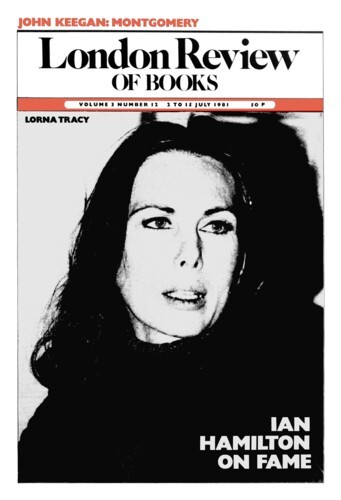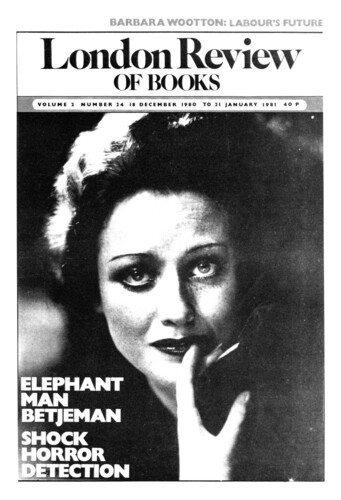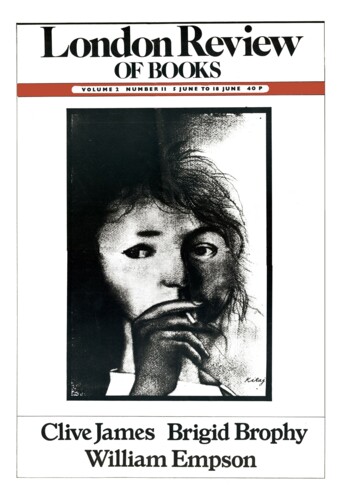Theatre-proof
Anne Barton, 2 July 1981
Twenty-one years ago, in The Characters of Love, John Bayley suggested that ‘there is a sense in which the highest compliment we can pay to Shakespeare is to discuss his great plays as if they were also great novels.’ At that time, Othello seemed to him particularly (indeed uniquely) responsive to such treatment. Here, Shakespeare was writing about ‘the private life – personal relations and problems of domesticity and daily living – in a way he does nowhere else’. This early essay on Othello, conceived in large part as a rejoinder to Leavis, has been widely and justly influential. Jane Adamson’s meticulous and sensitive reading of the play in Othello as Tragedy can be seen as an extension and development of Bayley’s 1960 approach. Her book catches up Bayley’s resistance, in The Characters of Love, to Leavis’s condescending detachment, his neat placing and dismissal of the hero. Uneasy, like Bayley, both with Bradley’s noble Moor, and Leavis’s criminal egotist, she seeks to understand love’s failure in terms of naturalistically-conceived characters placed in a detailed and convincing social milieu: people who are flawed and psychologically vulnerable in ways we all share.



